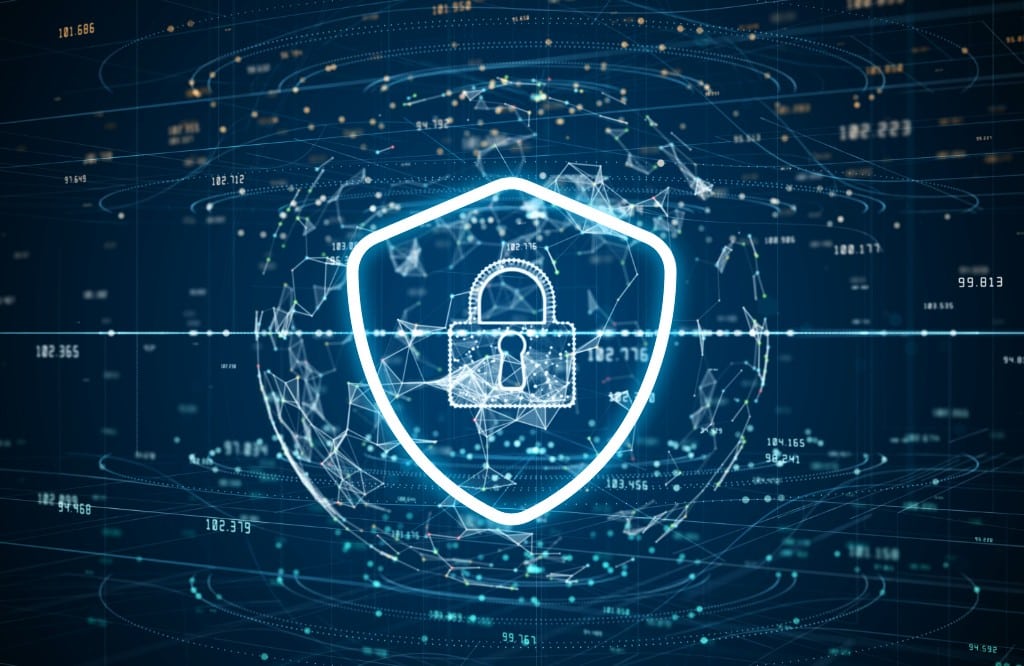
Cyberattacks remain a persistent threat to businesses of all sizes, with small and medium-sized businesses (SMBs) often being prime targets. Lacking the robust cybersecurity resources of larger corporations, SMBs are seen by cybercriminals as easier prey.
In this blog, we’ll explore the key cybersecurity trends SMBs need to watch in 2025 and share actionable strategies that can safeguard your operations.
The rise of artificial intelligence (AI) in cyberattacks
AI is becoming increasingly sophisticated, and cybercriminals are harnessing its power to execute increasingly sophisticated and effective attacks. Here are some ways AI is being used in cybercrime:
- Phishing and social engineering – AI enables cybercriminals to create highly convincing phishing emails and fake social media profiles. These make it easier for them to trick victims into sharing sensitive information or clicking on malicious links.
- Deepfakes for fraud – Using deepfake technology, a sophisticated form of AI, cybercriminals can craft convincing audio or video of real people. They use these deepfakes to commit identity theft, financial fraud, and other deceptive schemes.
- Exploiting system vulnerabilities – AI can rapidly scan networks and systems to pinpoint weaknesses. Once vulnerabilities are found, cybercriminals can exploit them to gain unauthorized access.
- Automating cyberattacks – With AI, cyberattacks can be automated and scaled, enabling cybercriminals to easily deploy large-scale assaults.
To protect your business from AI-powered threats, consider implementing these key strategies:
- Employee training – A knowledgeable workforce is your first line of defense. Regular training can help staff spot phishing attempts and fake communications, minimizing the risk of human error.
- Strong passwords and multifactor authentication (MFA) – Require employees to use strong, unique passwords for all accounts, and enable MFA when available. Even if a password is compromised, MFA adds an extra layer of security by requiring additional proof of identity. This makes it significantly more difficult for attackers to breach your systems.
- Regular security updates – Keep software and systems up to date with the latest security patches to close any vulnerabilities that cybercriminals could exploit.
- Advanced security tools – Invest in AI-powered cybersecurity solutions that can detect anomalies, block malware, and automate responses to potential threats. Cutting-edge security software strengthens your defenses and ensures threats are addressed swiftly and effectively.
The growing threat of ransomware
Ransomware remains one of the most destructive and disruptive cyberthreats. In 2025, cybercriminals are expected to escalate their tactics, using multifaceted extortion methods that combine data theft, encryption, and threats of public exposure.
Follow these tips to stay safe from ransomware:
- Back up your data regularly – Ensure your data backups are updated so that in the event of a ransomware attack, you can restore your files without having to pay a ransom. Store backups securely, ideally offline or within a separate network, to ensure maximum protection.
- Exercise caution with emails and links – Phishing emails are one of the most common entry points for ransomware. Be wary of opening emails from unknown senders and clicking links or downloading attachments in suspicious messages.
- Patch your systems regularly – Cybercriminals often exploit unpatched vulnerabilities in software to install ransomware. Regularly update all systems and applications with the latest security patches to close these gaps.
- Implement an incident response plan – In the event of a ransomware attack, this plan will guide your team through the process of containing the attack, recovering data, and resuming business operations as quickly as possible.
Quantum computing: Transforming security
Quantum computing brings unparalleled processing power, opening doors to possibilities once deemed impossible. Yet, this breakthrough poses a significant risk to existing encryption methods. With the ability to crack traditional encryption, quantum computers could expose sensitive data, leaving it vulnerable to breaches.
To stay ahead in the quantum era, adopt encryption algorithms built to withstand quantum-based attacks. Additionally, keeping informed about advancements in quantum computing and their impact on cybersecurity will be critical in safeguarding data and systems now and in the future.
Strengthening identity-based security
As hybrid work environments become more common, protecting employee identities has never been more critical. Compromised identities pose a significant threat to businesses, making robust security measures essential.
Strengthen your defenses by implementing MFA, leveraging biometric technologies (e.g., fingerprint or facial recognition), and adopting a zero trust approach. Zero trust involves continuous verification of user access, minimizing the risk of insider threats and boosting overall security.
Addressing Web3 and crypto vulnerabilities
The rise of Web3 and cryptocurrencies has unlocked exciting opportunities but has also introduced new risks. Decentralized platforms have become prime targets for cybercriminals who exploit vulnerabilities to steal digital assets.
To safeguard your SMB, consider these measures:
- Secure digital wallets – Use hardware wallets to protect cryptocurrency storage from online threats.
- Audit smart contracts – Regularly review and test blockchain applications to identify and eliminate exploitable flaws before they can be targeted.
- Educate your team – Train employees to recognize and mitigate the risks associated with Web3 technologies.
For a more comprehensive approach to security, partnering with a managed IT services provider (MSP) like SpectrumWise is key. We can help you craft an effective cybersecurity strategy, implement advanced protections, and stay ahead of emerging threats. Schedule a consultation with us to get started.



